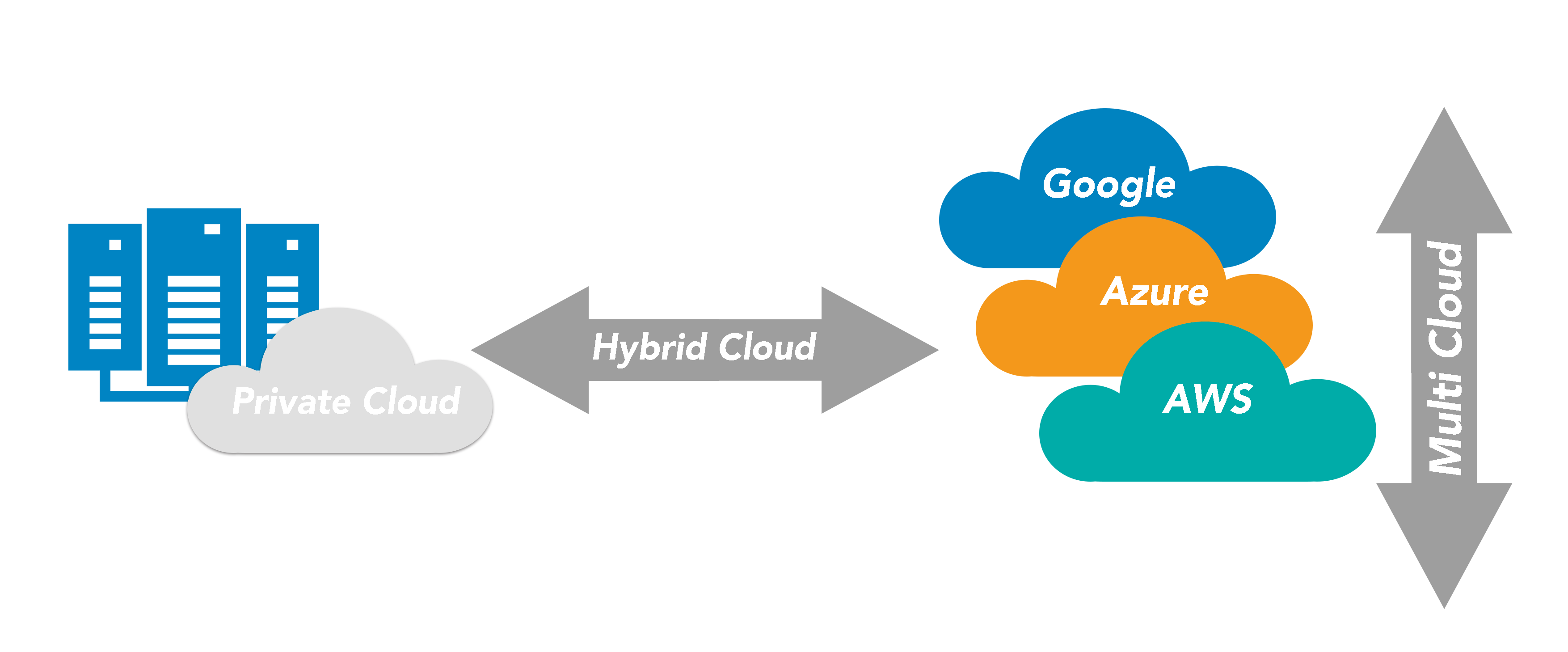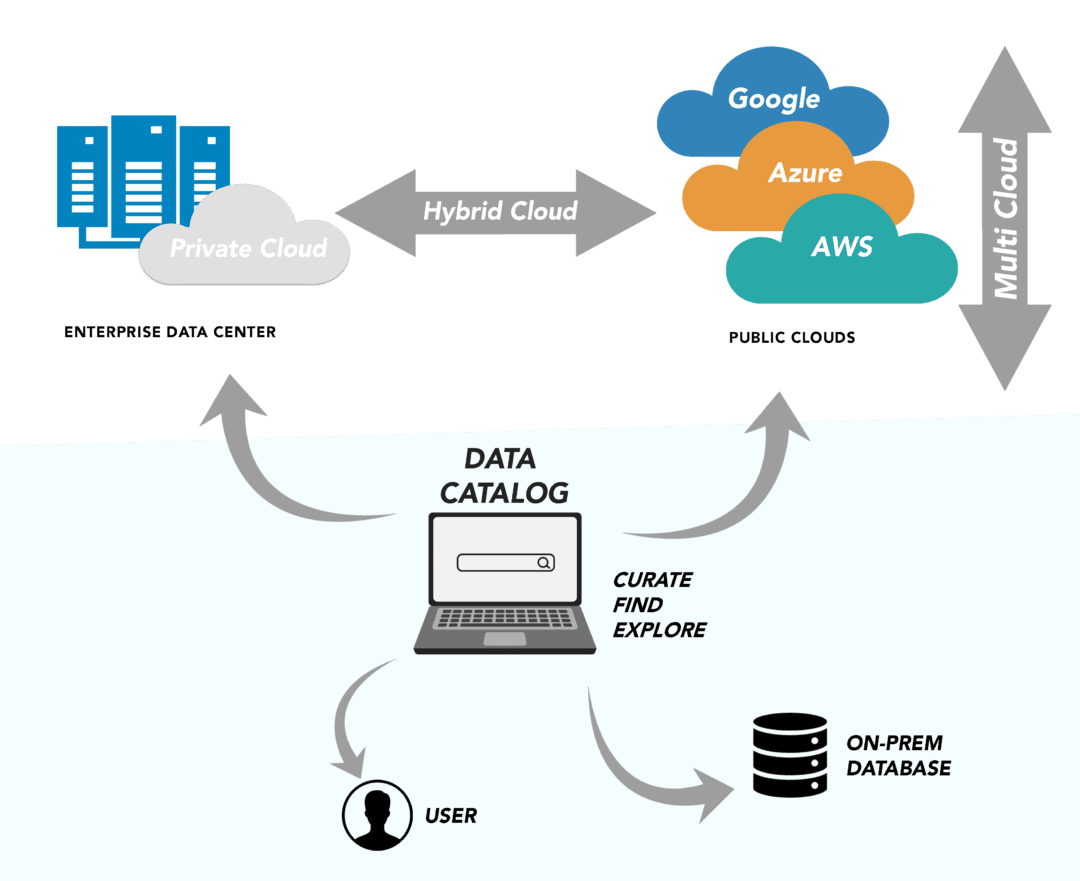Contemporary business initiatives such as digital transformation, are facing an explosion of data volume and diversity. In this context, organizations are looking for more flexibility and agility in their data management.
This is where Cloud strategies come in…
Data management definition
Before we begin, let’s define what data management is. Data Management, as described by TechTarget is “the process of ingesting, storing, organizing and maintaining the data created and collected by an organization”. Data management is a crucial part of an enterprise’s business and IT strategy, and provides analytical help that drives overall decision-making by executives.
As mentioned above, data is seen as a corporate asset that can be used to make better and faster decisions, improve marketing campaigns, increase overall revenue and profits, and above all: innovate. As a result, organizations are seeing cloud technologies as a way to improve their data initiatives.
Cloud strategies are the new black in data management disciplines
It is an undeniable fact that Cloud service providers are becoming the new default platform for database management. This phenomenon provides data management teams with great advantages:
- Cost-effective deployment: Greater flexibility and a more rapid configuration.
- Consumption-based spending: Pay what you use and do not over provision
- Easy maintenance: better control over the associated costs and investments
By knowing this, there is no doubt that data leaders perceive cloud as a less expensive technology, driving this choice even more.
Data leaders will embrace the cloud as an integral part of their IT landscape in the coming years and months. However, we strongly believe that the rate at which organizations migrate to the cloud will differ by organization size. Small or midsize organizations will migrate quicker , while larger organizations will take months, even years to migrate.
Thus, the Cloud is going to become a default option for all data management technologies. Many strategies appear including various deployment types or approaches. We have identified 3 main strategies:
- Hybrid Cloud: Made up of two or more separate Cloud infrastructures that may be private or public and that remain single entities
- Multicloud: Use more than one cloud service provider infrastructure as well as on-premises solutions.
- Intercloud: Where data is integrated or exchanged between cloud service providers as part of a logical application deployment.

The Cloud is also seen as an opportunity for data analytics leaders
The increased adoption of cloud strategy deployments regarding data management has important implications for data and analytics strategies. As data is moving to the cloud, the data and analytics applications they use must follow.
Indeed, the emphasis on the speed of value delivery has made cloud technologies the first choice for new data management solution development for vendors, and deployment for enterprises. Thus, enterprises and data leaders are choosing next-gen data management solutions! They will migrate their assets by selecting applications that connect to future cloud strategies and preparing their teams & budgets for the upcoming challenges they will overcome..
Those data leaders who use analytics, business intelligence (BI) and data science solutions are seeing Cloud solutions as greater opportunities to:
- Use a cloud sandbox environment for trial purposes in terms of onboarding, usages, connectivity and create a prototyping analytics environment before actually buying the solution.
- Facilitate application access wherever you are and improve collaboration between peers.
- Access to new emerging capabilities over time with ease, with continuous delivery approaches.
- Support heavy lifting with the cloud’s elasticity and scalability along the analytics process.
A data catalog, the new essential solution for cloud data management strategies
Data and analytics leaders will inevitably engage in more than one cloud where data management, governance and integration become more complex than ever before. Thus, data leaders must equip their organization to new metadata management solutions to assist in finding and inventorying data distributed across a hybrid and multi cloud ecosystem. Failure to do so will result in a proliferation of data silos, leading to derailed data management, analytics and data science projects.
Data management teams will have to choose among the wide-range of data catalog in the market the most relevant one.
We like to define a data catalog as a way to create and maintain an inventory of data assets through the discovery, description and organization of distributed datasets.
If you are working on the data catalog project, you will find:
- On the one hand by fairly old players, initially positioned on the Data Governance market.
These players provide on premises solutions with rich but complex offers, which are expensive, difficult and time-consuming to deploy and maintain, and are designed for cross-functional governance teams. Their value proposition is focused on control, risk management and compliance.
- on the other hand by suppliers of data infrastructures (Amazon, Google, Microsoft, Cloudera, etc.) or data processing solutions (Tableau, Talend, Qlik, etc.), for which metadata management is an essential block to complete their offer. They offer much more pragmatic (and less costly) solutions, but are often highly technical and limited to their ecosystem.
We consider those alternatives as not sufficient enough. Here are some essential guidelines to find your future data catalog. It must:
– Be a cloud data catalog enabling competitive pricing and rapid ROI for your organization.
– Have universal connectivity, adapting to all systems and all data strategies (edge, cloud, multi-cloud, cross-cloud, hybrid).
– Have very advanced automation for the collection and enrichment of data assets as well as their attributes and links (augmented catalog). The automatic feeding mechanisms, as well as the suggestion and correction algorithms reduce the overall cost of the catalog and guarantees the quality of the information it contains
– Be strongly focused on user experience, especially for business users, to improve solution adoption.

To conclude, data management capabilities are becoming more and more cloud-first and in some cases cloud-only.
Data leaders who want to drive innovation in analytics will need to leverage cloud technologies from data assets. They will have to go from ingestion to transformation without forgetting to invest in an efficient data catalog in order to find their way in an ever more complex data world.













